Students at University of Canterbury, New Zealand decided to recycle the food waste for compost in 2010. The recycling process was set up from putting the food wastes into wheelie bins to fermenting the mixture of the wastes and EM Bokashi to using for soil treatment.
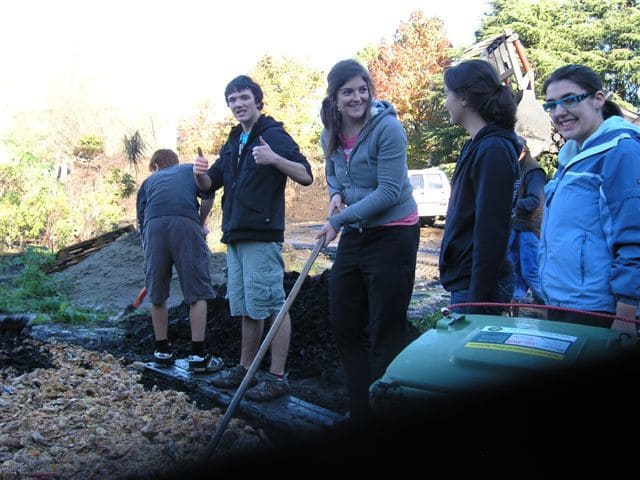
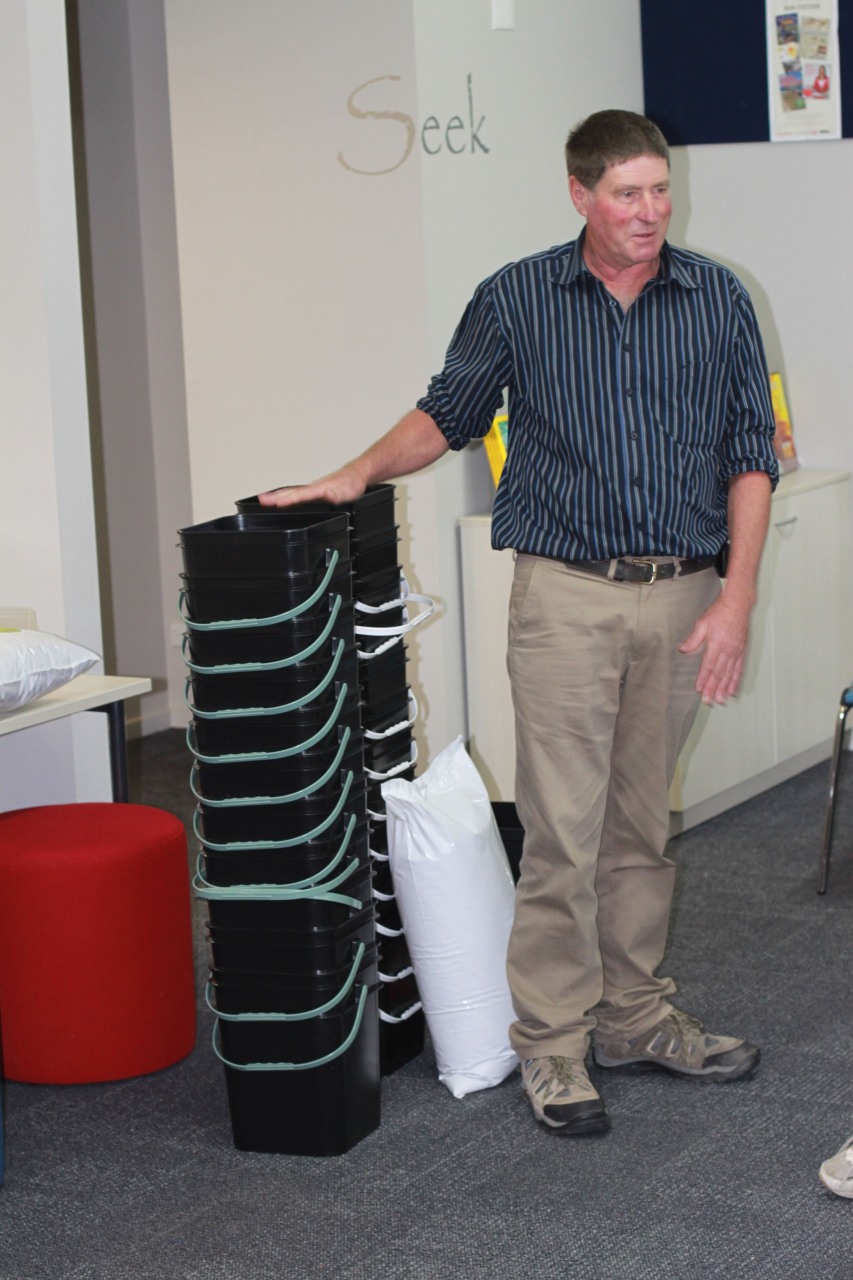
In 2010 the University of Canterbury Sustainability office approached Bokashi NZ about setting up a food waste recycling project at Rochester/ Rutherford House-a residential hostel for 180 students .
With all of the food waste going out with other rubbish and finding its way to landfill, it was decided that a better usage could be made with the food waste .A meeting was called with all interested parties which included catering staff, students , Bokashi, NZ, hostel and University Sustainability staff.
This resulted in a plan being formulated to process all the food waste stream with [EM] bokashi and utilise the finished product in the university campus Community garden.
The project was envisaged to be a trial that could be replicated in other hostels within the university campus.
Resident students were informed of the project and volunteers were called for to assist with transporting and processing the fermented waste at a site nearby the residence.
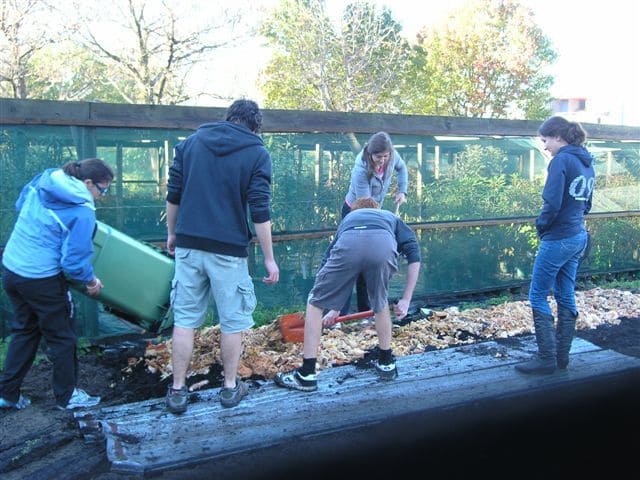
The food waste uses 140l modified wheelie bins, which have had a seal and drainage system fitted.
After each meal the caterers put any waste into these bins and add [EM] bokashi as per instructions.
Once filled the bins are set aside to complete fermentation and any liquid which collects in the bottom is drained off and poured into the kitchen grease trap to help control odours.
When the 7 day fermentation period is complete the bins are taken to a site closeby and the contents are spread out onto the ground at a prepared site and then the food waste is covered over with a layer of leaf mould..
A plastic cover is then placed over the help to help maintain moisture levels within the maturing pile plus keep rain fall out .The process is repeated for around 4-5 weeks when a second pile is started.
When the second pile is complete, a third is started and the material within the first pile is then ready to be removed to the campus community garden as compost for adding to the soil and assist with the growing of food crops.
Students attend he Community garden on a regular basis to help maintain it and in turn receive food grown on the site.
About 3500l of food waste is being processed per semester.
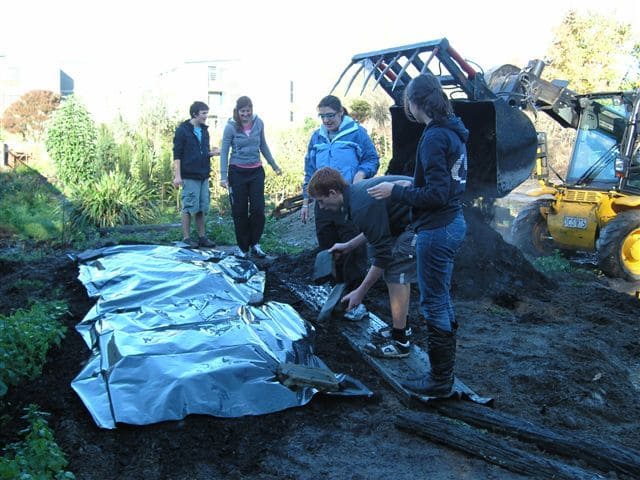
Although this project started back in 2010, it was disrupted by the Canterbury Earthquake,when the hostel was closed for a period.
The project is back up and running this semester and the Campus Community garden will once again receive a good supply of nutrient rich material to enhance the garden soils.
Neville Burt
Bokashi[NZ] Ltd
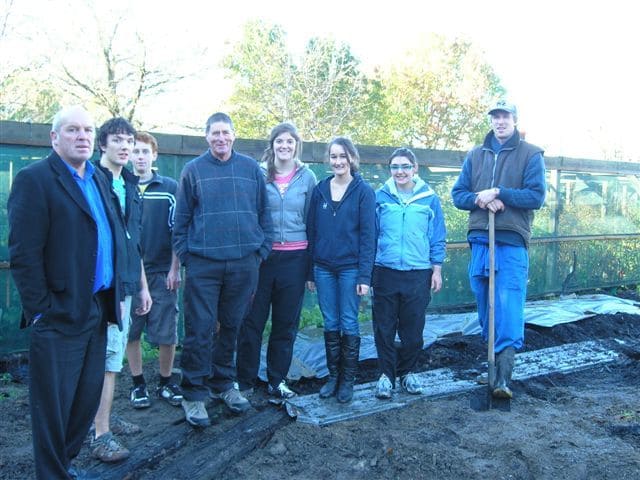
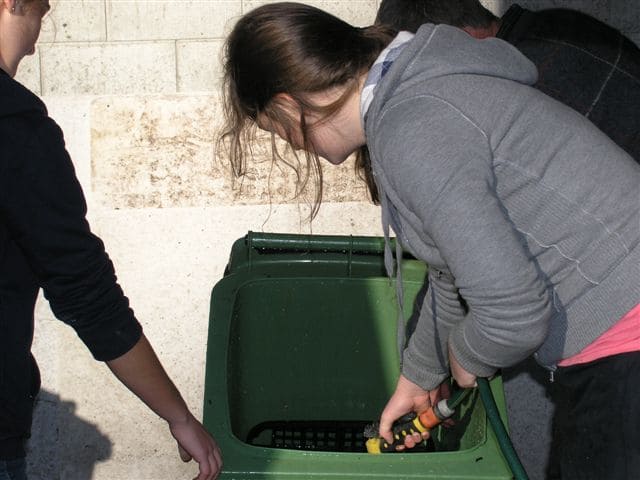
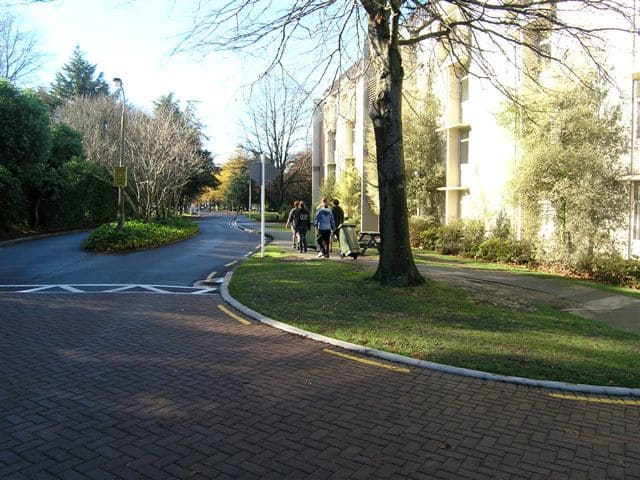
2016.7.5 Updated